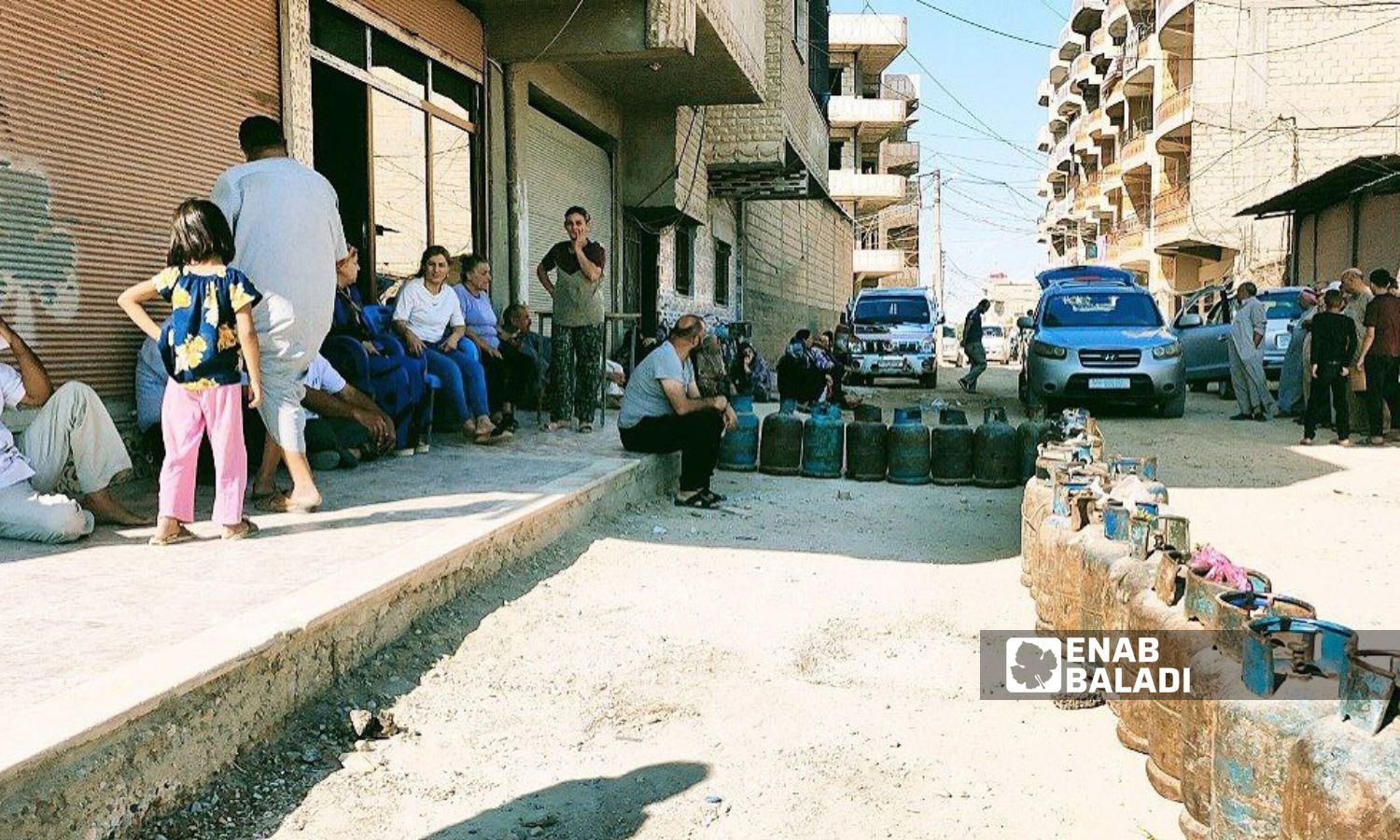



Al-Hasakah – Majd al-Salem
The technical condition of home gas cylinders available in the markets worries the residents of Qamishli. These cylinders are worn out and they lack maintenance, which turns them into time bombs that threaten with explosions or leaks.
The deterioration and wear of the cylinders have caused incidents in Qamishli in recent months, leading to explosions that resulted in deaths, injuries, and property damage.
Mohammad al-Ahmad (40 years old), a resident of Qamishli, says that the damage to the valve of the cylinder is one of its major technical problems. He noticed damage to the valves of most gas cylinders he purchased in recent months.
Al-Ahmad considers this damage a threat to his family. He is always afraid of gas leaking from the valve, especially during sleep. Therefore, he always asks his wife to tightly close the valve after each use.
He added that replacing a gas cylinder has become a matter of “luck.” Despite paying 150,000 Syrian pounds (about 10 US dollars) to exchange an empty cylinder with a filled one, one might receive a cylinder with poor technical specifications and “nonexistent” safety conditions.
The poor technical condition of the cylinders has led some distributors to exploit this situation for extra profit.
A few months ago, Hussein al-Karim (46 years old) from Qamishli waited in a long queue to replace a gas cylinder. After paying 150,000 Syrian pounds, he noticed a leakage problem. When he tried to replace it, the distributor refused under the pretext that there were no more cylinders available.
Al-Karim told Enab Baladi that he had to pay 20,000 Syrian pounds for the distributor to accept the faulty cylinder and replace it.
Now, every time al-Karim wants to replace a gas cylinder, he pays an additional 3,000–5,000 Syrian pounds to the worker to choose a good cylinder for him. The distributor calls this an “honorarium,” but in reality, it is a “bribe” that he is forced to pay in addition to the cylinder cost.
According to observations by Enab Baladi, many residents resort to paying this “bribe” to get cylinders in good technical condition and to ensure they receive the correct weight. Some distributors reduce the gas in the cylinders, causing a decrease in weight.
Cylinders are transported and unloaded unsafely. Workers throw empty cylinders from the top of the truck to the pavement, which causes valve damages and breaks.
Mohamad al-Kirt, a gas distributor from Qamishli, told Enab Baladi that gas cylinders are “very worn out in general,” and maintenance requests are not free. The distributor bears any damage or fault that occurs in the cylinder and, in turn, passes the maintenance costs and valve replacements onto the consumer.
Among the most common technical problems in cylinders currently used in the market are valve damage and breaks, leaks from the outer surface, loss of the cylinder’s base, and deformed or bulging cylinders.
Despite the poor technical condition of the cylinders, their prices have increased. The price of an empty cylinder has reached 750,000 Syrian pounds (50 dollars).
Thamer Daoud (49 years old) from the Zahraa neighborhood in Qamishli bought a second cylinder as a backup (known locally as the cylinder shell) for 750,000 Syrian pounds, a price he sees as high compared to its “nonexistent safety conditions.”
However, he is forced to do so to ensure his family does not run out of gas, he told Enab Baladi.
Despite the Autonomous Administration of North and East Syria (AANES) raising the price of a gas cylinder by about 15 times (from 10,000 to 150,000) since mid-December 2023, there have been no accompanying maintenance operations or cylinder replacements.
These complaints continue despite the Autonomous Administration announcing on June 26, 2023, the “preparation of a home gas cylinder manufacturing plant.” However, nearly a year after the trial operation of the plant, residents have not seen new cylinders in the market.
The defense factories of the Syrian regime used to produce household and industrial gas cylinders but ceased production at the beginning of 2022 due to the “lack of essential raw materials, which requires foreign currency to import.”
According to the local al-Watan newspaper, quoting an unnamed source from the Damascus Gas Distributors Association, half of the gas cylinder valves used in Syria are damaged.
if you think the article contain wrong information or you have additional details Send Correction